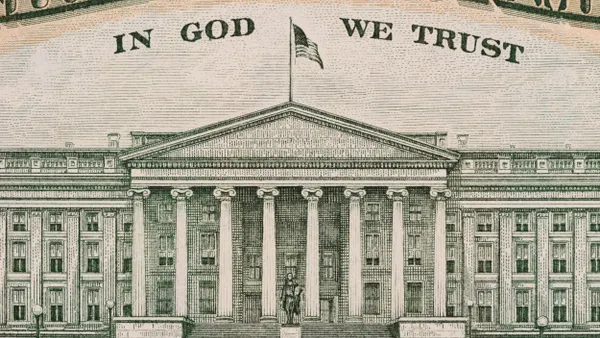Fifty-six percent of U.S. companies are taking steps to prepare for a recession and they expect that recession to coincide with the 2020 presidential election. But they are also more positive about the U.S. economy than they were in the third quarter.
Those were among the findings of the fourth-quarter Duke University/CFO Global Business Outlook survey, which polled more than 800 finance executives worldwide.
Among the U.S. firms preparing for a recession, 59% say they are strengthening their balance sheets, 58% reducing costs, 49% increasing liquidity, and 31% scaling back or delaying investment.

“However, it would be foolhardy to claim that the recession in 2020 or 2021 was a surprise. Although recessions are not controlled by CFOs, the impact on their firm is, to a large degree, managed by the CFO. This time around, CFOs will be judged by their preparations.”
Fifty-four percent of U.S. firms indicate they are unlikely to spend their cash holdings during 2020. They want to preserve liquidity and spending power should a recession take hold and tighten lending markets.
“Hoarding cash and reducing debt are the most obvious tactics to dull the blow of a recession,” Harvey said.
Other popular anticipatory moves cited by finance executives include scaling back or delaying hiring and writing up detailed contingency plans to deal with a recession’s onset.
Even with CFOs mindful of a coming recession, the United States continues to lead the world in optimism about the general business environment.
While talk of an imminent recession in the United States has died down somewhat, slightly more than half of the more than 400 U.S. CFOs surveyed in early December still expect a recession by the end of next year, which would be concurrent with the presidential election. (About 75% believe a recession will hit by mid-2021.)
“I’d expect uncertainty about the election itself to cause firms to slow expansion in the summer and fall of 2020,” said John Graham, a finance professor at Fuqua and director of the Duke/CFO survey.
Indeed, economic uncertainty was second only to “difficulty hiring and retaining qualified employees” as a top worry among U.S. finance chiefs. Government policies came in as the fifth biggest concern.
Globally, CFO sentiment is in sync. Seventy-nine percent of CFOs in Asia believe their countries will be in recession by the fourth quarter of 2020, as do the majority of CFOs in Africa (77%), Canada (67%) and Latin America (55%). Forty-nine percent of CFOs in Europe expect a recession, but not until the end of 2020.
Even with CFOs mindful of an economic contraction, the United States continues to lead the world in optimism about the general business environment. The CFO optimism index, historically an accurate predictor of hiring and GDP growth, registered 67 on a scale of 0 to 100 this quarter, compared with Europe (60), Latin America (58), Canada (57), Asia (52), and Africa (44).
The percentage of U.S. CFOs who said they were more optimistic about the economy than three months ago hit 28%, up from 12% in the third quarter.
U.S. CFOs are also bullish on their own companies, with the own-company-optimism index hitting 75, the highest in more than three years.
The Duke/CFO Business Outlook survey has been conducted for 95 consecutive quarters and spans the globe, making it the world’s longest-running and most comprehensive research on senior finance executives. See the full survey results.













